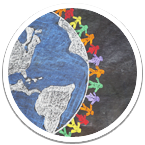Case management
+(1).jpg/f3452c8b-38fe-4176-b3ce-729a52438432?t=1542807346732)
Case management supports the effectiveness of services, and promotes the health and welfare of the client.
Case management is work with an individual in which a case manager
- charts the client's situation comprehensively
- takes responsibility for the client's service package
- together with the client, takes care of planning, obtaining and coordination of the client's services
- monitors that the client's case proceeds according to plan.
Case management is important especially in the different changes and transitional stages of clients’ lives, and particularly beneficial when clients have long-term, diverse service needs. For people who have moved to Finland, such transitional stages may include arrival in Finland and the first stages of integration. Case management and a network-like approach are particularly beneficial with clients with very difficult previous experiences and a need for versatile services and forms of support.
Case management is coordinating work which promotes collaboration between different organisations and administrative branches.
Culturally sensitive case management
It is important to pay attention to the client’s background, language and culture in case management. Many are unfamiliar with the service system. They may also find it challenging to recognise their own service needs. Indeed, clients must be guided with a hands-on approach in finding different services as well as booking appointments, for instance.
It is important to identify groups that are at risk of being excluded from services, such as older people, people with disabilities, and children. If necessary, access to services is supported with close cooperation among professionals and taking the client’s entire family into account in case management.
The clients’ opportunities for taking care of their personal wellbeing must be supported with the approaches that best suit their needs and the use of a language that the client is familiar with whenever possible. If there is no shared language, the assistance of an interpreter must be used.
- Holistic work approach
- Cultural competence and cultural sensitivity
- Working with the assistance of an interpreter
Case management is everywhere
All professionals working with clients engage in case management when referring clients to services they need. In addition to actual case management, the client’s service use is also promoted by measures such as:
- a booking service in the client's mother tongue
- materials and videos provided in different languages on the service provider's website
- cooperation with non-governmental organisations
- different approachable advice and counselling services.
The clearer the information about the available services, the less there is need for heavier case management. Nonetheless, actual case management should be always available for those needing it.
At the beginning phase of immigration, immigrants must be provided with support in integration. The authorities have the duty of providing advice on the services in their area of responsibility and refer clients to services by other authorities when necessary.




